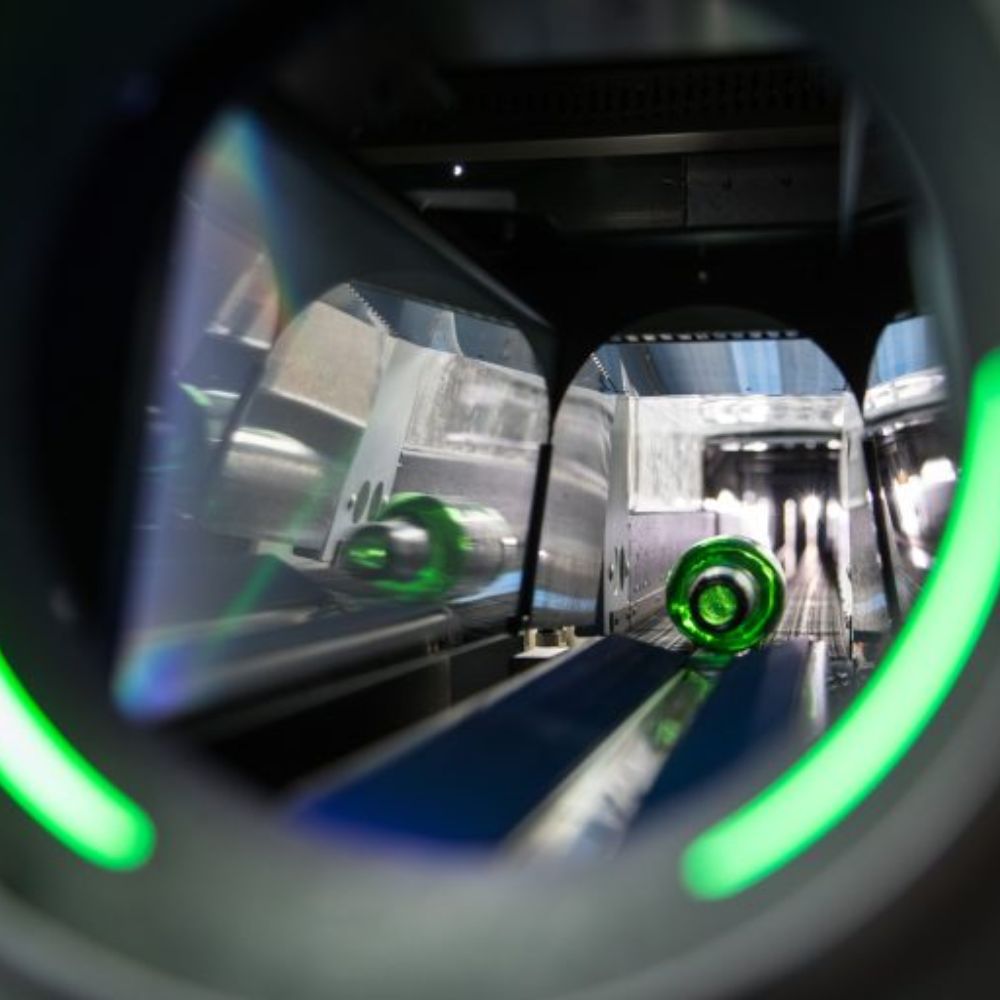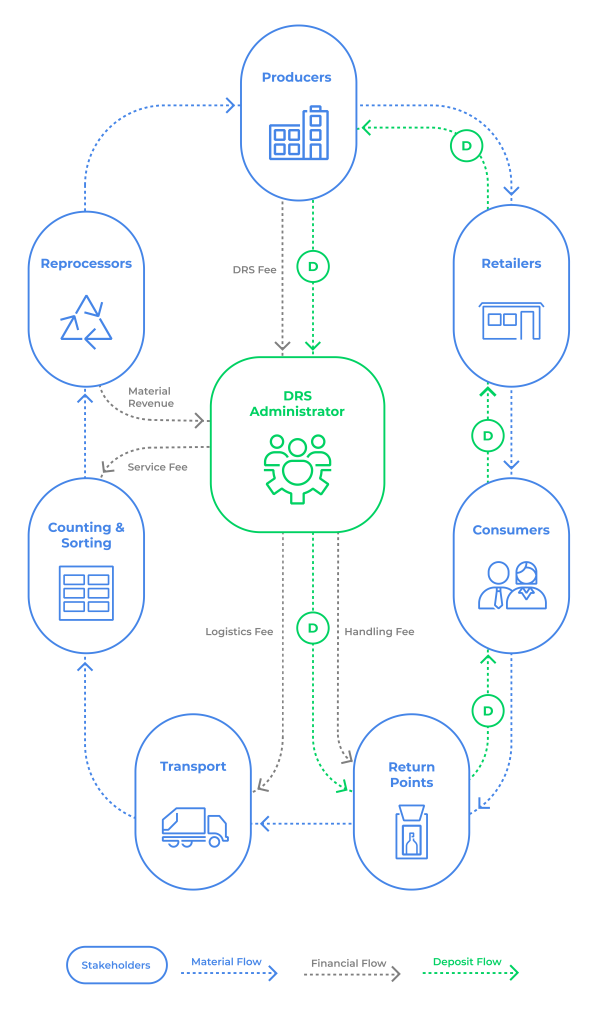
What is a Deposit Return System (DRS)?
A Deposit Return System (DRS) is a recycling program in which consumers pay a small deposit on beverage containers, which is refunded when the container is returned. Designed to reduce litter and boost recycling rates, DRS supports a circular economy by keeping materials in use and out of landfills.
By enabling the regeneration of high-quality materials for recycling, DRS also supports the bottle-to-bottle concept, closing the loop for beverage containers and promoting truly sustainable packaging.
Key Benefits of Deposit Return Systems
Regulatory Compliance
Ensures compliance with evolving environmental regulations
Cost Efficiency
Reduces operational costs through more efficient material recovery
Brand Reputation
Enhances brand sustainability credentials and public trust
Innovation
Drives innovation in packaging and reverse logistics
Stakeholder Engagement
Strengthens stakeholder engagement across the value chain
Sustainability Impact
Supports ESG and circular economy goals with measurable impact
How Do Deposit Return Systems Work?

RLG’s Deposit Return System Services
DRS IT systems
RLG provides flexible, scalable IT solutions for Deposit Return Systems. Our technology integrates seamlessly to ensure transparency, accuracy, and adaptability, delivering reliable performance across the network.
DRS Consulting
RLG is your trusted partner in DRS consulting, delivering expert insights and tailored guidance at every stage. From legislation review to practical implementation, we ensure your system is effective, compliant, and built for long-term success.
DRS Operations and Support
RLG offers end-to-end operational support for DRS, managing everything from reverse logistics and financial coordination to partner support and container counting, ensuring smooth, compliant, and efficient system performance.
DRS Collection Devices
RLG brings innovative, scalable collection solutions for all retail formats, from RVMs to handheld devices. Our technology integrates seamlessly with DRS systems to ensure efficient, flexible, and user-friendly operations.
DRS End-to-End Solution
RLG delivers adaptable, end-to-end support for Deposit Return Systems, from legislation to retail collection. Our technology and data-driven approach ensure efficient rollouts, full traceability, and seamless stakeholder coordination.
FAQ’s – Deposit Return Systems
A DRS is a recycling program where consumers pay a deposit on drink containers, refunded when they return the empty item for recycling.
Typically, producers and retailers must comply with DRS regulations, often supported by a system operator or third-party service provider.
Most systems cover plastic, glass, and metal beverage containers, subject to local legislation.
RLG provides consulting, IT systems, collection solutions, and operational management to ensure full DRS compliance and efficiency.
Yes. DRS must adapt to local laws, consumer behavior, infrastructure, and retail landscapes—customisation is essential for success.
A well-run DRS improves brand sustainability, ensures compliance, reduces waste costs, and enhances material recovery.
Yes. RLG’s modular IT infrastructure integrates easily with ERP, CRM, DMS, and other business systems.
DRS improves traceability, recycling rates, and transparency supporting corporate sustainability and circular economy goals.
Common tools include reverse vending machines (RVMs), handheld scanners, mobile apps, and secure data platforms for deposit clearing and reporting.
RLG offers long-term operational support including logistics, data management, partner coordination, technical maintenance, and post-go-live consulting to support process optimization.
Are you interested in our DRS solutions?
We are happy to support you! Just send us a message and we will get back to you as soon as possible.

